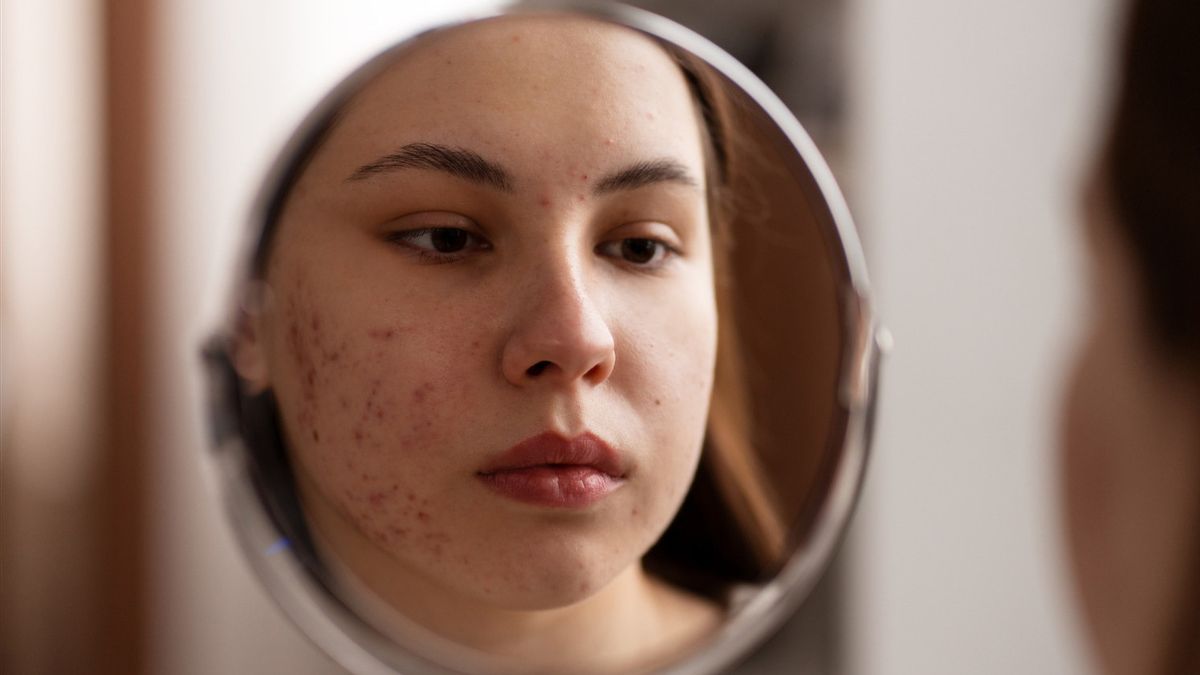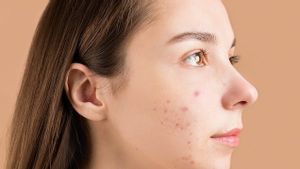YOGYAKARTA – Acne is a complaint that doesn't discriminate. This complaint is experienced not only at the age of puberty, but for certain reasons it can be experienced by everyone with an age range between 11-30 years. Even more than that age can also experience acne. Even more disturbing, acne is often incomplete and invites new complaints, namely acne scars. So, types and ways to prevent and treat acne scars, here's an explanation.
Types of acne scars
Acne scars are called scar tissue, this is not only due to the habit of squeezing pimples that cause scabs. Scarring occurs due to damage to the skin after excess oil production, inflammation, and bacteria are restored leaving scars. But more than that, the dermatologist explains what types of acne are.
- Atrophic scars, this type of acne scars are known as depressed acne scars which form indentations on the skin. According to board-certified dermatologist
- Brendan Camp, MD., This type is often seen when light shines on the skin and you can see an uneven skin surface.
- Hypertrophic scars, which are thick and raised above the skin. Hypertrophic scar tissue may look similar to a keloid.
- Small scars or ice-picks that are small and look like a punctured skin.
- A box car scar is a scar that is shallow but has sharp edges.
- Acne scars are shallow and have fine-edged depressions, as opposed to box car scars.
Hyperpigmentation is actually not just scars, but occurs after acne skin becomes inflamed. Clearly Camp, this is marked by changes in skin color due to previous acne lesions and can last for months to years.

To prevent acne scars, you can take certain steps. Most importantly, avoid popping pimples that cause scarring. To treat acne scars, you can take the following steps.
How to treat acne scars
Besides avoiding squeezing pimples while they are growing, you also need to do a number of treatments so that the scars are not severe. There are several ways to treat acne scars, here are the steps.
1. Use skincare containing retinol and retinoid
To help improve the texture and color of the skin from acne scars, the main ingredient is retinol or retinoids which are also known to prevent and treat acne. Certified dermatologist Marisa Garshick, MD. reported by Byrdie, Monday, August 28, retinoids help regulate skin cell turnover, help even out skin tone, and also work to increase collagen production which can improve texture changes in scars. Therefore, even if the acne has subsided, it is important to continue using a retinoid or retinol to improve the appearance of acne scars.

2. Exfoliation
Exfoliation, including chemical exfoliation using alpha-hydroxy acids such as glycolic acid, lactic acid, and beta hydroxy acids such as salicylic acid, can work to remove dead skin cells. By lifting dead skin cells, it makes the skin look soft and smooth. As a suggestion, to treat active acne you can use salicylic acid while treating hyperpigmentation and dark spots you can use alpha-hydroxy acid.
3. Wear sunscreen
Routinely wearing sunscreen is a way to prevent acne scars, especially types of hyperpigmentation. Due to sun exposure, scars have the potential to darken, making them more visible. Even if you have used other skincare, it is important to apply sunscreen. Garshick's advice, use a non-comedogenic labeled sunscreen that doesn't clog pores. Don't forget to wear it every day to protect skin damaged by UV rays.
4. Antioxidants
Antioxidants can be included in your skincare routine, such as vitamin C, which helps brighten skin and improve the overall appearance of discoloration. Niacinamide is a skin-improving ingredient in addition to the antioxidant vitamin C. It can also help reduce redness, inflammation, and improve discoloration due to acne scars.

5. Treatment in the clinic
If the above treatments are carried out at home independently, treating acne scars can be chosen after consulting a dermatologist. Later, the doctor will recommend and provide treatment at the clinic. Such as with microneedling, laser, subcision, steroid injections, to filler injections.
6. Avoid excessive exfoliation
Exfoliating the skin too often and using strong ingredients can cause disruption to the skin barrier or skin barrier. Apparently, over-exfoliation also causes acne scars to become more inflamed. So choose to exfoliate gently, do it slowly, and make sure to hydrate your skin after exfoliating.
SEE ALSO:
According to Garshick and Camp, acne scarring is normal. How to treat acne scars and prevent them needs to be done according to your skin condition. More importantly, consult a dermatologist early on for treatment according to complaints so you don't regret it later.
The English, Chinese, Japanese, Arabic, and French versions are automatically generated by the AI. So there may still be inaccuracies in translating, please always see Indonesian as our main language. (system supported by DigitalSiber.id)


















